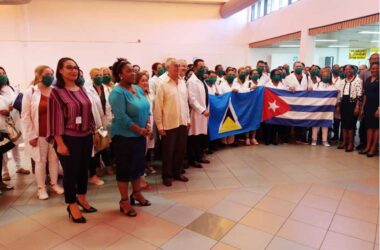THE Department of Health and Wellness has received reports of cases of Hand, Foot and Mouth Disease from some of the schools on island.
Hand, Foot, and Mouth Disease is a contagious viral illness. It is common in infants and children younger than 5 years old and spreads easily in child care settings because of frequent diaper changes, and because young children often put their hands in their mouths. However, older children and adults can also get the illness.
The Department of Health and Wellness records cases of Hand, Foot and Mouth Disease yearly and early interventions usually limit transmission.
Hand, Foot and Mouth Disease is usually not a serious disease, and most persons recover in 7 to 10 days without medical treatment.
Symptoms include fever, reduced appetite, sore throat, painful mouth sores that usually begin as flat red spots, rash of flat red spots that may blister on the palms of the hands, soles of the feet, and sometimes the knees, elbows, buttocks, and/or genital area.
Persons may not always present all of these symptoms and some people may not show symptoms at all, but they can still pass the virus to others.
The virus can be transmitted from an infected person to others by close contact, such as kissing, hugging, or sharing cups and eating utensils, coughing and sneezing, contact with stool, for example when changing a diaper, contact with blister fluid, and touching objects or surfaces that have the virus on them.
The following measures can be used to reduce the spread of Hand, Foot, and Mouth Disease:
• Frequent hand washing often with soap and water for at least 20 seconds, especially after changing diapers.
• Avoid touching your eyes, nose, and mouth with unwashed hands.
• Avoid close contact and sharing cups and eating utensils with infected persons.
• Disinfect frequently touched surfaces and objects, such as toys and doorknobs, especially if someone is sick.
• Avoid going to work or school until fever is gone and mouth sores have healed.
The Department of Health and Wellness urges persons to visit their nearest Wellness Centre if you are unsure of you or your child’s condition or if signs and symptoms worsen.
For more information please contact the Bureau of Health Education or the Epidemiology Unit, at 468-5349/ 468-5325 respectively.







![Amy Stephen [Photo credit: Community Tourism Agency]](https://thevoiceslu.com/wp-content/uploads/2026/01/Amy-Stephen-feat-380x250.jpg)





